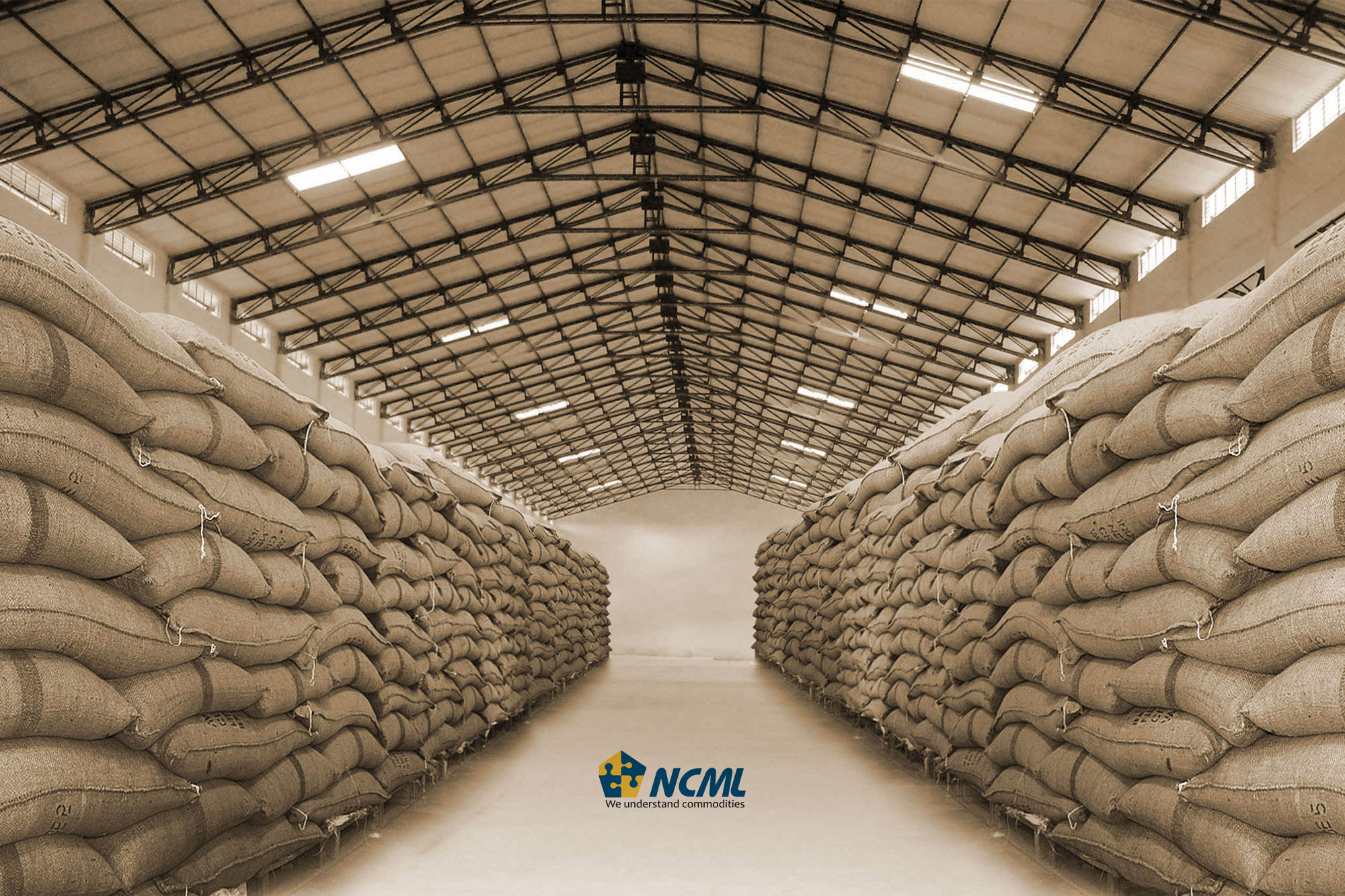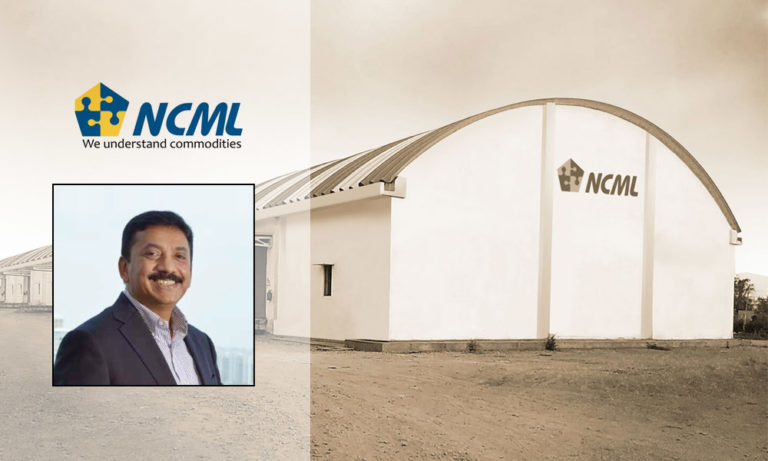The National Collateral Management Services Limited (NCML) is the country’s leading organisation providing a bouquet of commodity-based services under a single umbrella. NCML has empowered a multitude of stakeholders in the commodity value chain in managing their risks. Fairfax India, which is a Group Company of the Prem Watsa led Fairfax Financial Holdings, has a majority ownership interest and management control in NCML.
The objectives of NCML are to provide integrated trading and supply chain services; To provide comprehensive and effective collateral and risk management services; To provide linkages for growers & traders with spot and futures markets; To provide accurate and incisive market intelligence and advisory services; To provide credible and low-cost testing and certification services and to create a safe and liquid warehouse receipts market and promote commodity financing.
With Indian Economy & Market, in a freewheeling chat, Siraj A Chaudhry, MD & Chief Executive Officer of NCML shares the vision and future plans of the company.

Please tell us how NCML empowers stakeholders in the commodity value chain in managing their risks?
NCML is the country’s leading storage and preservation company offering modern, scientific, and IT-enabled storage and preservation services for the entire range of commodities across 150+ locations pan India. Our customers include farmers, traders, financial institutions, wholesalers, retailers, and consumers who face commodity risk of varying kinds and degrees. NCML manages risks such as quality, quantity, price risk(s), in the
post-harvest agricultural value chain, and Crop and Weather risk(s) in the “Our ‘Surakshit Mandi’ program provides a direct platform to farmers” pre-harvest operations. NCML offers a suite of services such as the Commodity Management Solution(s), Food and Agri-Testing and Inspection services, Crop Weather informatics, financial services with Agri-Commodities as collateral, and eMarketplace for seamless buying and selling of
commodities through auctions.
NCML has acquired lands at several locations to create its own chain of dry warehouses. Can you explain more about this?
What is the capacity right now? NCML has spread its network across 18 States at 38 locations with a total built infrastructure of 3.67 million square feet with a capacity of more than 6 Lac MT of bagged grain storage. This also includes cold storage units at two locations at Nizamabad and Guntur and 48KMT of bulk storage in Steel Silos at Purnea and Bareilly.

There is a collective view that post-COVID19 people across the continent will undergo a lot of change; disruptions in the entire segment will be observed. What would be in the sector you are operating in?
The Government has taken various measures to tackle COVID-19 in India. The complete lockdown in the country also played an important role in containing the spread as we strengthened the capacity to handle. Also, the various restrictions on public gatherings have helped in a certain way to reduce the spread of COVID-19. In the global pandemic, while the Indian economy has been facing headwinds of coronavirus, the agricultural industry has shown growth. Recently, India became surplus in most Agri-commodities, though there was a significant surge in the sector, but the farmers were facing many challenges in getting reasonable prices of their crops because of a lack of investment in warehouses, processing, cold storage, and export. Farmers had suffered huge losses when there were bumper harvests, especially of fresh commodities. To overcome the hurdles, the Government came up with many reforms to help the farmers. With the amendment to the Essential Commodities Act, the farmers now have the freedom to produce, hold, move, distribute, and supply.
The new ordinance introduced by the Government will empower farmers for engaging with wholesalers, processors, aggregators, large retailers, exporters, etc., without any fear of exploitation. It will transfer the risk of market volatility from the farmer to the sponsor and will enable the farmer to access modern technologies. It will also lessen the cost of marketing for farmers and will allow them to improve their incomes.
In its new series of policy decisions, the Government has a big plan to promote warehousing. Your take?
The government has always been supportive of warehousing and presently is keen to promote bulk storage through a Hub and Spoke model. Prevention of storage-related loss combined with the needs of food security for PDS, TPDS, and PM Garib Kalyan Yojana shall continue to spur the warehousing needs. We need to ensure that warehouses are planned and constructed in areas where it is needed rather than where it is convenient to build.
Tell us about a new project Surakshit Mandi started by NCML. Where all have you started it and how it has been helping the farmers?
To tackle the aggregation of farm produce without breaking the protocol of social distancing in the global pandemic, we initiated ‘Surakshit Mandi’ program to help farmers in selling their crops through NCML warehouses. This provided a direct platform to Indian farmers to get the right price, timely and affordable credit, and has also ensured a safe and smooth transaction. In May, we had launched a pilot project at Kota and Sri Ganganagar in Rajasthan after the Government allowed direct purchase from farmers amid the lockdown restrictions. Farmers were provided with COVID-19 guidelines and masks (in case he is not wearing one) at entry. After weighing, the bay/unloading point shall be allotted to the farmer to unload his material for auction.
When you are coming out with the “India Commodity Yearbook” this year?
The yearbook for 2020 was released in the month of February. The next edition will be around the same time next year. This year marked the first instance wherein all the contributors to the book are in-house and part of the NCML family, highlighting the companies’ strength in research and analytics. The book covers four broad themes – the present commodity space, the recent initiatives in technology and innovation in agriculture, the newly emerging areas, and the critical theme of managing commodity risk.
The book includes major topics such as increasing farmers’ income, remote-sensing, and GIS applications in agriculture, transforming the agriculture supply chain through technology and innovation, organic farming in India, and the state of Agri-tech startups in the country. Another critical subject on which the book sheds light is ‘Managing Commodity Risk’ – which talks about both pre as well as post-harvest risks faced by the farming community and mitigating factors present in the country.
The content is relevant to all policymakers, researchers, analysts, commodity and finance professionals, and stakeholders in the commodity space including commodity market participants, traders, distributors, processors, importers, and exporters. Even a general reader interested in the commodity and agriculture space will find the book useful.






















